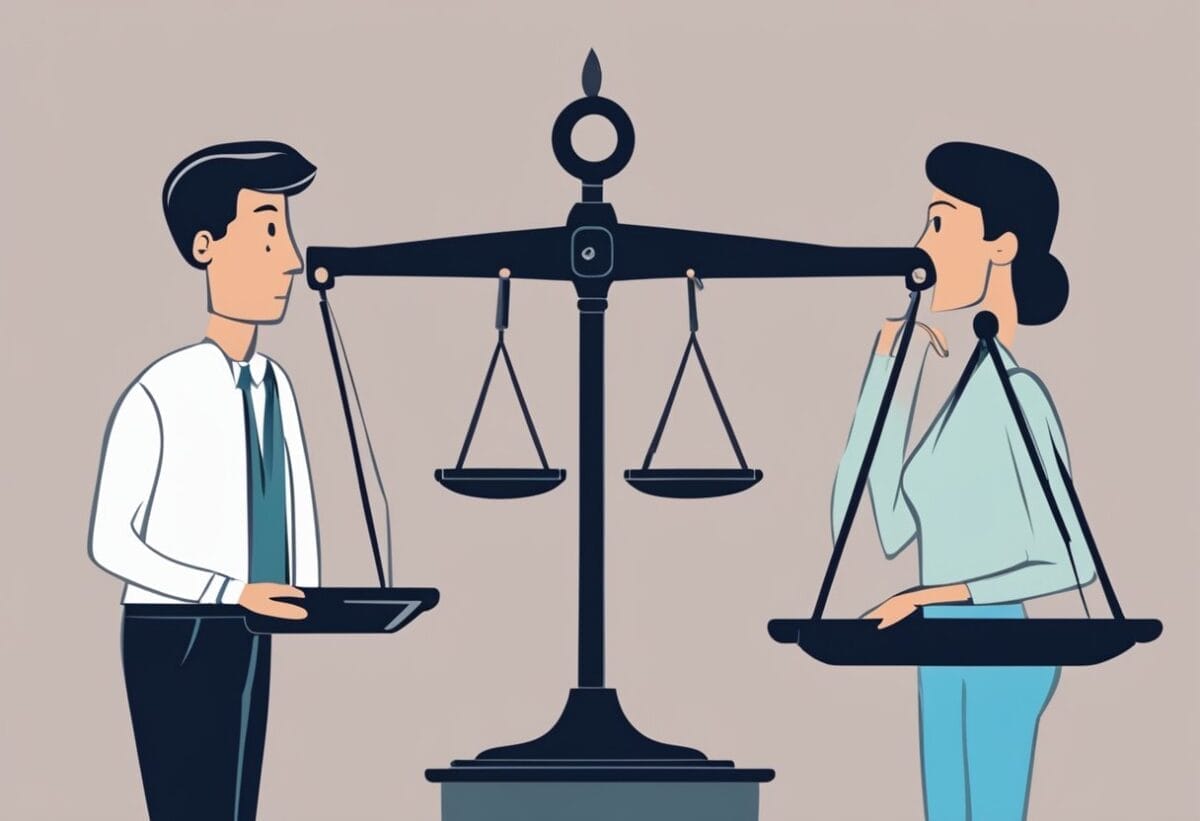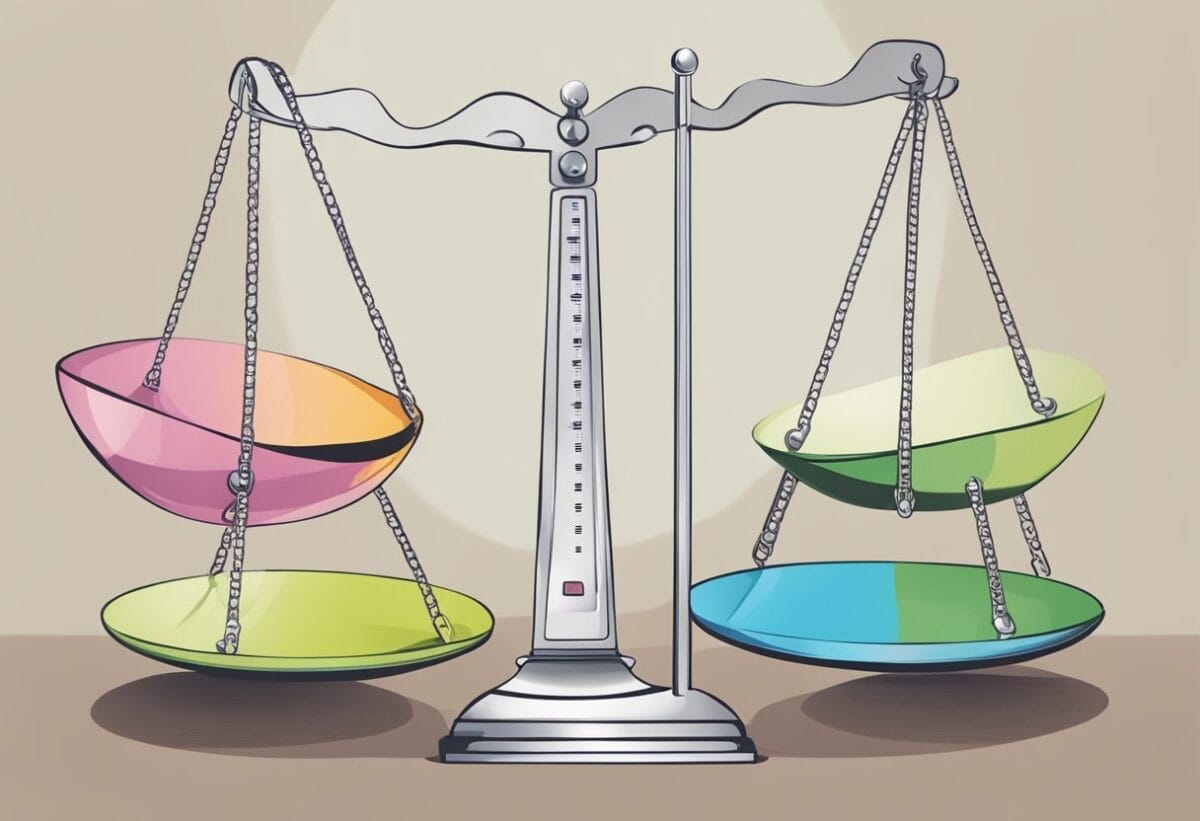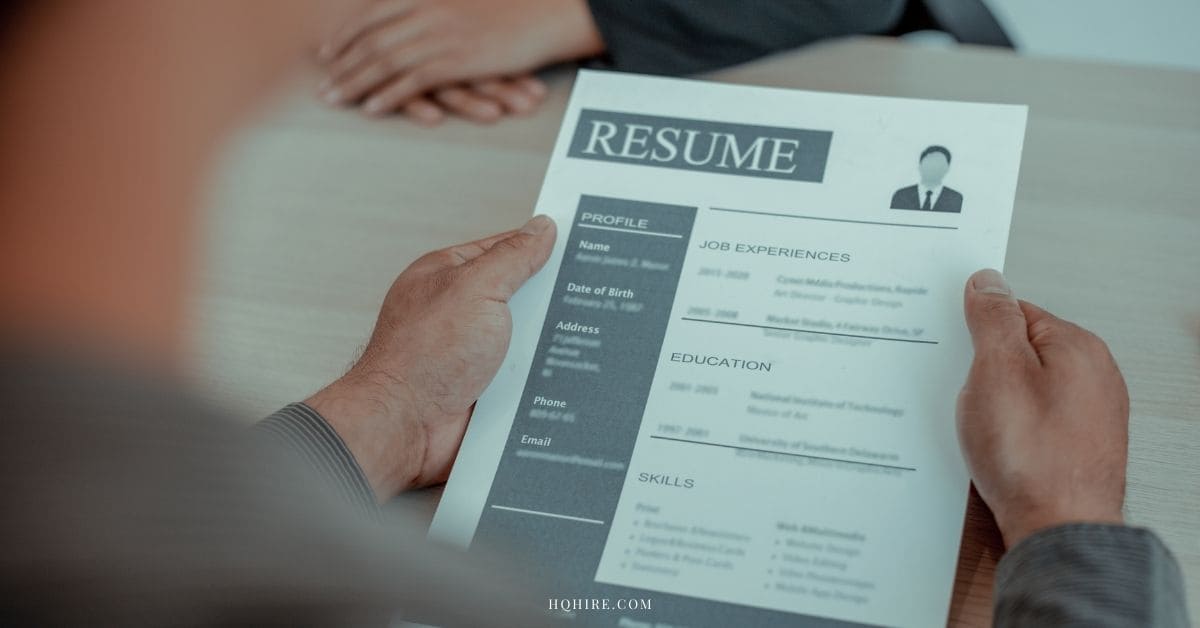When answering tricky interview questions such as “Tell me about a time you handled an ethical dilemma.” This job interview question helps employers learn about your values and decision-making skills.
Think of a real situation where you faced a moral challenge at work and solved it well.
When answering, explain the situation, what you did, and why.
Show that you can make good choices even when it’s hard. This will impress your interviewer and boost your chances of getting the job.
This shows you can handle tough choices and stick to your principles.
Key Takeaways
- Prepare a real example of an ethical dilemma you’ve faced
- Explain your actions and reasoning clearly
- Show your ability to make tough decisions based on strong values
Why Do Employers Ask “Tell Me About a Time You Handle an Ethical Dilemma” During an Interview
Employers ask this question to learn about your character and decision-making skills. They want to see how you approach tough situations where there’s no clear right answer. Companies need employees they can trust to do the right thing, even when no one’s watching. Your answer helps them gauge if you’ll uphold their ethical standards.
By asking about past experiences, they get a real-life example of how you’d act in their company. It’s more telling than asking what you’d do in a hypothetical scenario.
- Your response shows if you can think critically and act with integrity. It gives insight into your personal values and how you apply them at work.
- Your response will reveals your problem-solving abilities. Employers want to know you can handle complex issues professionally and find good solutions.
Your answer can set you apart from other candidates. It’s a chance to showcase your maturity, judgment, and leadership potential.
Preparing for this question helps you reflect on your own ethics. It reminds you to stay true to your values in all work situations.
Common Variations of “Tell Me About a Time You Handle an Ethical Dilemma”
Interviewers often ask about ethical dilemmas in different ways. Here are some common variations:
- “Describe a situation where you faced an ethical challenge at work.”
- “Tell me about a time you had to make a difficult ethical decision.”
- “Have you ever witnessed unethical behavior? How did you handle it?”
- “Share an example of when you stood up for what’s right, even if it was unpopular.”
These questions aim to learn about your values and decision-making skills. They want to see how you approach tough situations.
Some other ways they might ask include:
- “What’s the toughest ethical choice you’ve had to make?”
- “Can you give an example of a time you upheld company values?”
- “Tell me about a moment when you questioned if something was right or wrong.”
Show your thought process.
Explain the situation, your actions, and the result. Think of 2-3 examples you can use. This will help you feel more confident when asked.
How to Answer “Tell Me About a Time You Handle an Ethical Dilemma”

This guide will help you craft a strong answer to the ethical dilemma interview question. You’ll learn how to choose a relevant situation and explain your actions clearly.
Step 1: Pick a real situation from your past
Think of a time when you faced a tough ethical choice at work or school. Choose an example that shows your integrity and problem-solving skills.
Don’t make up a story. Interviewers can often tell when you’re not being honest. If you’re new to the workforce, you can use an example from school or volunteering.
Here, you’ll need to pick a situation where you made the right choice. This will show the interviewer your good judgment.
Step 2: Set the scene for your story
Explain the situation briefly but clearly. Tell the interviewer who was involved and what the ethical issue was.
Keep it simple. Don’t go into too much detail about unimportant parts of the story. Focus on the key facts that led to your ethical dilemma.
For example, you might say: “In my last job, I noticed a coworker taking office supplies home for personal use.”
Step 3: Describe the ethical dilemma you faced
Explain why the situation was tricky and what made it hard to decide what to do.
Show that you understood the different sides of the issue. This proves you can think critically about complex problems.
You could say: “I knew taking company property was wrong, but I didn’t want to get my coworker in trouble. We were friends outside of work.”
Step 4: Explain the actions you took to resolve the dilemma
Walk the interviewer through your thought process and the steps you took.
Highlight any company policies or ethical guidelines you followed. This shows you respect rules and make decisions based on solid principles.
For instance: “I decided to talk to my coworker privately first. I explained why taking supplies was wrong and how it could hurt the company.”
Step 5: Share the outcome of your actions
Tell the interviewer what happened because of your decision. Focus on the positive results, even if the situation was tough.
Explain what you learned from the experience. This shows you can grow and improve from challenges.
You might end with: “My coworker thanked me for the private talk and stopped taking supplies. I learned the value of addressing issues directly but kindly.”
Best Example Answers to “Tell Me About a Time You Handle an Ethical Dilemma”

Preparing strong answers to ethical dilemma questions can help you stand out in interviews. These examples show how to frame your experiences positively while highlighting your problem-solving skills and integrity.
Example Answer for a Recent Graduate
“In my internship, I noticed a coworker taking office supplies home. I felt uncomfortable but didn’t want to cause trouble. After thinking it over, I spoke privately with my supervisor. I explained what I saw without naming names.
My supervisor thanked me for bringing it up. They addressed the issue in a team meeting about company policies. This solved the problem without singling anyone out. I learned the importance of speaking up about ethical concerns in a thoughtful way.”
Example Answer for an Experienced Candidate
“At my last job, a client asked me to alter financial reports to make their company look better to investors. I knew this was wrong and could have serious consequences.
I politely refused and explained why it would be unethical and illegal. I offered to review their finances and suggest legal ways to improve their reports. The client was initially upset but eventually appreciated my honesty. We ended up working together to enhance their financial practices legitimately.”
Example Answer for Applying for a Leadership Position
“As a project manager, I discovered a team member was claiming credit for another’s work. I knew I had to address this but wanted to handle it carefully.
I met with both employees separately to hear their sides. Then, I brought them together to discuss the importance of collaboration and giving credit. We created a system to track individual contributions on projects.
This experience taught me how to mediate conflicts and promote a culture of integrity. It’s now a key part of how I lead teams.”
Example Answer for an Industry Change
“In my previous role in sales, I was pressured to push a product I knew had flaws. I struggled with the idea of misleading customers for profit.
I decided to be honest with potential buyers about the product’s limitations. I also gave feedback to our product team about customer concerns. This led to improvements in the product.
My sales numbers dipped at first, but customer satisfaction increased. I realized that ethical selling builds long-term success. This experience shapes how I approach my work in any industry.”
Example Answer for a Career Change
Join over 11,000+ achievers who are committed to achieving their career goals!




![100+ Best Soft Skills to Put on Resume [According to Statistics] 6 List of The Best Soft Skills For Resume At Work](https://hqhire.com/wp-content/uploads/2022/08/List-of-The-Best-Soft-Skills-For-Resume-At-Work-768x402.jpg)

